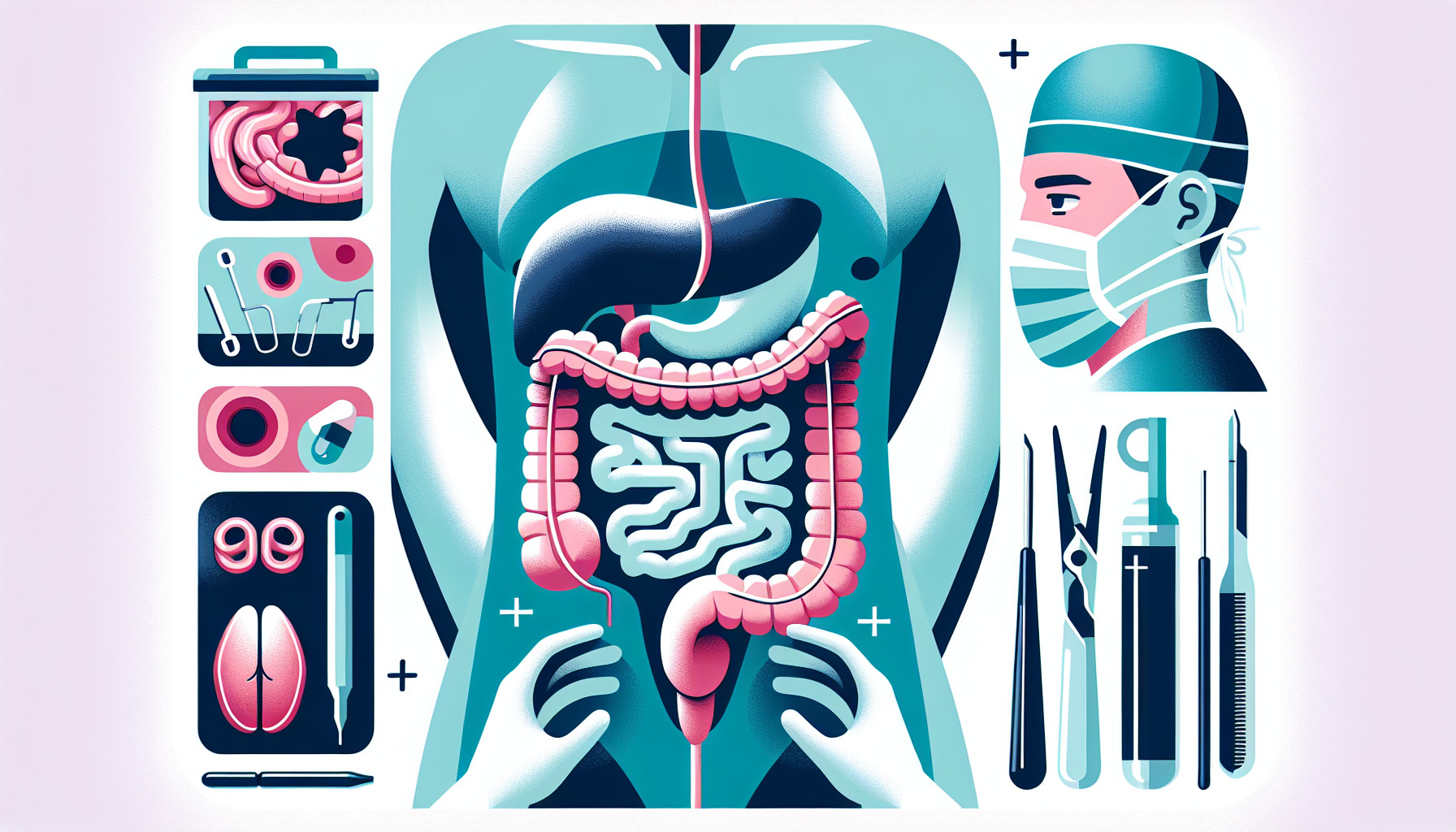Our Summary
This research study looks at patients who had both an intestinal transplant and a kidney transplant at the same time (SIKT). The study aimed to find out if UK guidelines that suggest including a kidney transplant for patients with severe kidney problems (either needing dialysis or with an eGFR measure of under 45) are reasonable.
The study looked at adults who had an intestinal transplant at the Cambridge Transplant Centre between December 2007 and January 2016. Out of 63 intestinal transplants performed, seven patients (or 11.1%) also received a kidney transplant. Of these seven, five were not on dialysis but had a low eGFR measure (average of 29), one was on dialysis, and one needed both kidneys removed at the time of transplant.
The study found that there were no immediate failures of the transplanted kidneys and that the kidney function (as measured by eGFR) three months after surgery was about the same for those who had both transplants as for those who only had an intestinal transplant. However, two patients needed dialysis due to kidney damage from infection and died from multiple organ failure (after 20 and 63 months). Two more patients died with a functioning kidney transplant (after 10 and 15 months). The remaining three patients were still alive at the time of follow up (12-96 months later) with an eGFR of 20-45.
In conclusion, the study suggests that patients with severe kidney problems might benefit from having a kidney transplant at the same time as their intestinal transplant. Their survival and kidney function were about the same as those who only had an intestinal transplant. However, more research is needed to confirm whether a kidney should be allocated to this group of patients, who are high risk due to their complex health issues.
FAQs
- What is the purpose of a simultaneous intestinal and kidney transplantation (SIKT)?
- How many patients underwent an intestinal transplant at the Cambridge Transplant Centre between December 2007 and January 2016?
- What were the survival rates and renal function of patients who underwent a SIKT compared to those who underwent an intestinal transplant alone?
Doctor’s Tip
One helpful tip a doctor might tell a patient about intestinal transplant is to closely monitor kidney function before and after the transplant. Patients with significant renal impairment (eGFR <45 ml/min/1.73 m2) and those receiving dialysis may benefit from a simultaneous intestinal and kidney transplant. It is important to continue monitoring kidney function post-transplant to ensure optimal outcomes. Regular follow-up appointments with a nephrologist and transplant team are essential for long-term success.
Suitable For
Patients who are typically recommended for intestinal transplant are those with intestinal failure who have failed other treatments such as total parenteral nutrition. In some cases, patients may also have concurrent kidney failure and may benefit from simultaneous intestinal and kidney transplantation. Patients with significant renal impairment (estimated glomerular filtration rate <45 ml/min/1.73 m2) and those requiring dialysis may be considered for simultaneous intestinal and kidney transplantation. These patients should be carefully selected based on their overall health status and potential benefit from the transplant procedure.
Timeline
Before intestinal transplant:
- Patient experiences intestinal failure, often resulting from conditions such as short bowel syndrome, inflammatory bowel disease, or vascular disorders.
- Patients may require long-term parenteral nutrition or have complications such as infections, liver disease, or malnutrition.
- Evaluation by a multidisciplinary team to determine candidacy for intestinal transplant.
- Pre-transplant assessments, including medical, surgical, nutritional, and psychological evaluations.
- Placement on the transplant waiting list.
- Continued management of complications and medical issues while awaiting transplant.
After intestinal transplant:
- Surgery to remove the diseased intestine and transplant a healthy donor intestine.
- Post-operative care in the intensive care unit and hospitalization for monitoring and recovery.
- Immunosuppressive medications to prevent rejection of the transplanted organ.
- Close monitoring for complications such as rejection, infection, and graft-versus-host disease.
- Rehabilitation and physical therapy to regain strength and function.
- Long-term follow-up care to monitor organ function, manage medications, and address any complications.
- Potential need for additional organ transplants, such as kidney transplant in cases of renal failure.
- Overall improved quality of life and potential resolution of symptoms related to intestinal failure.
What to Ask Your Doctor
- Am I a candidate for intestinal transplant?
- What are the risks and benefits of simultaneous intestinal and kidney transplantation (SIKT)?
- How will having an intestinal transplant affect my overall health and quality of life?
- What is the success rate of intestinal transplants at this hospital?
- How long is the recovery process after an intestinal transplant?
- What kind of follow-up care will I need after the transplant?
- How will I need to adjust my diet and lifestyle after the transplant?
- What medications will I need to take after the transplant and what are the potential side effects?
- What are the potential complications or risks associated with intestinal transplant surgery?
- How long can I expect the transplanted organs to function successfully?
Reference
Authors: Amin I, Rutter C, Barlow A, Russell NK, Bradley JA, Jackson A, Butler AJ. Journal: J Invest Surg. 2019 Jun;32(4):283-289. doi: 10.1080/08941939.2017.1409849. Epub 2018 Jan 15. PMID: 29333883
